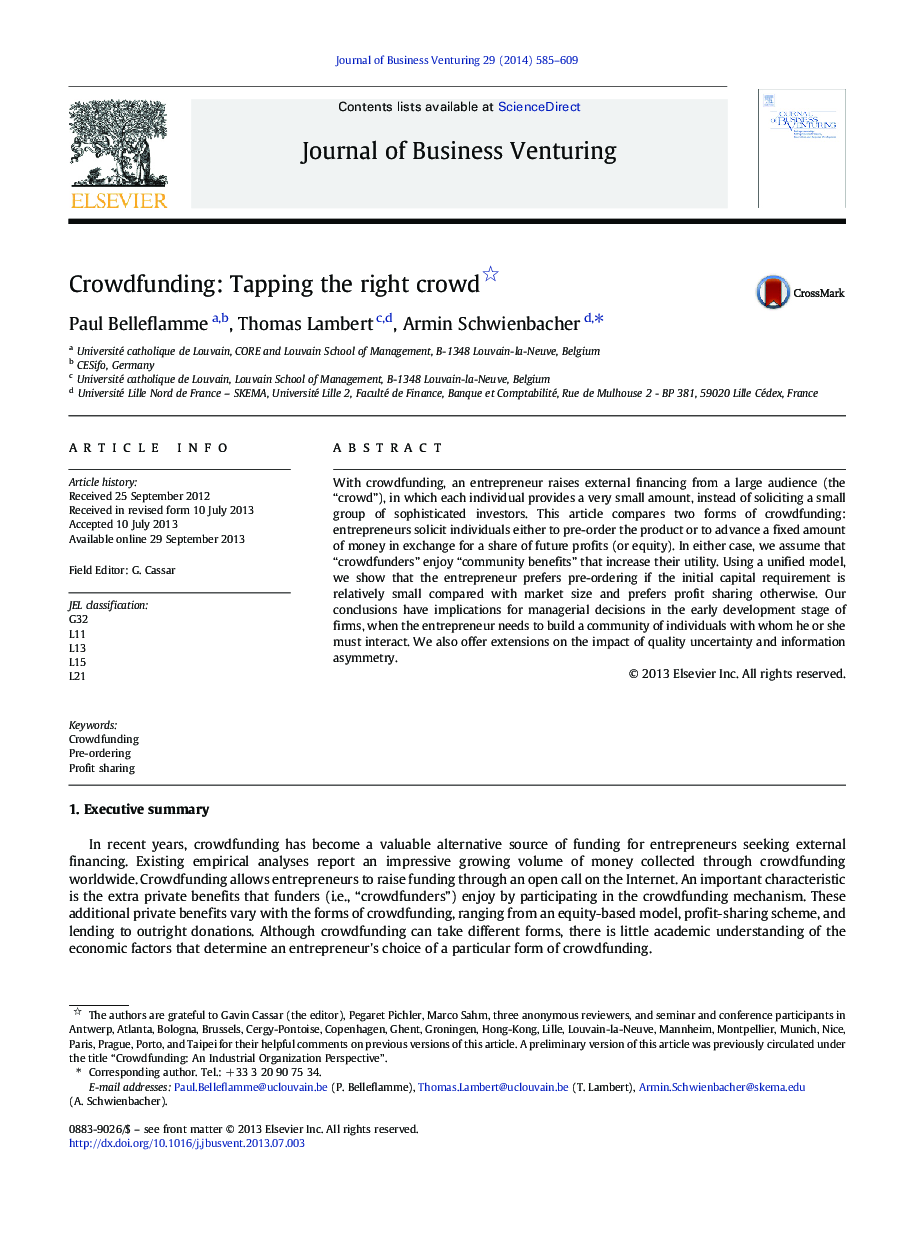| Article ID | Journal | Published Year | Pages | File Type |
|---|---|---|---|---|
| 1019368 | Journal of Business Venturing | 2014 | 25 Pages |
•Two forms of crowdfunding are compared: pre-ordering vs. profit sharing.•Profit sharing is optimal for entrepreneurs with large capital requirements.•Building a community that supports the entrepreneur is crucial for crowdfunding to be a viable funding mechanism.
With crowdfunding, an entrepreneur raises external financing from a large audience (the “crowd”), in which each individual provides a very small amount, instead of soliciting a small group of sophisticated investors. This article compares two forms of crowdfunding: entrepreneurs solicit individuals either to pre-order the product or to advance a fixed amount of money in exchange for a share of future profits (or equity). In either case, we assume that “crowdfunders” enjoy “community benefits” that increase their utility. Using a unified model, we show that the entrepreneur prefers pre-ordering if the initial capital requirement is relatively small compared with market size and prefers profit sharing otherwise. Our conclusions have implications for managerial decisions in the early development stage of firms, when the entrepreneur needs to build a community of individuals with whom he or she must interact. We also offer extensions on the impact of quality uncertainty and information asymmetry.
